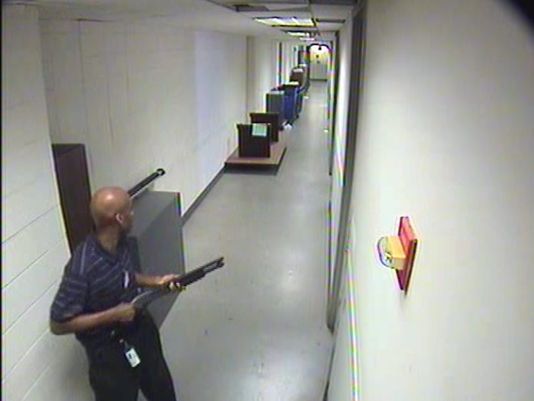
One of the most important pieces of information that we have learned about Aaron Alexis — one that is being largely overlooked — is that he tried repeatedly to get help before he murdered twelve people at the Washington Navy Yard.
This was not an instance of someone “snapping” without warning, as I heard one TV pundit claim a few hours after the shootings.
An investigation by The Washington Post reveals that Alexis’s erratic and violent behavior was “ignored, overlooked or dismissed for nine years by the police, the military, the Department of Veterans Affairs and his own employer.” There were plenty of times when someone should have helped Alexis.
No one did.
During my travels, I have noticed that many individuals sought help on their own or were willing to accept help if a family member or friend encouraged them to seek it during their so-called “first break” from reality.
Either our system didn’t respond or they were so traumatized by what happened that they never wanted to go back. While this is not always the case, it happens more often than we wish to admit.

One obvious problem is our system is badly under funded, making readily available help difficult to get. In Fairfax County, Virginia, where I live, there is a five to seven day wait to see a community psychiatrist. That delay is a recipe for disaster.
Another problem is that our system is designed to put out fires, not stop them from happening. By law, we wait until a person has become dangerous to intervene and then wonder why our jails and prisons are filling up with people who have been arrested rather than helped.
Both of these problems can be fixed. What is more difficult to repair is the need for compassion and caring in our system and our society.
I don’t expect every surgeon to weep when he loses a patient on an operating table, but we have become so callous about mental illness that we walk by persons who are clearly delusional and homeless with only one thought: Don’t make eye contact — otherwise that homeless person will assault me or ask for money.
Each winter individuals with mental disorders freeze to death on our streets. Others live under bridges or in substandard boarding homes or shelters where they are often abused and neglected.
Unfortunately, I’ve observed this same sort of shoulder shrugging from health care workers.
Under pressure from insurance companies and hospital administrators, psychiatrists in our country have become diagnosticians who prescribe medication based on a fifteen minute evaluation. Some do not see a need to know anything about their patient but his/her symptoms.
When I confronted one of my son’s psychiatrists who had spent only ten minutes with my son before sending him out the door with a prescription, he explained that his job was not to treat my son, only to give him medication.
An emergency room doctor told me that he had admitted and discharged a woman with schizophrenia more than a dozen times in the past three months, keeping her in the hospital less than 24 hours each time she was brought in. When I questioned whether he was practicing good medicine, he said, “she’s harmless and isn’t worth the time.”
“The homeless like living under the stars,” a social worker told me once.
Where is the compassion and concern?
Imagine what might have happened if the police dispatcher in Newport, R.I., had taken time to send a Crisis Intervention Team trained patrol officer over to speak to Alexis when he complained about strangers sending vibrations into his body with a microwave machine and keeping him awake.
The Newport officer explained, “We see numerous cases like this every day. He didn’t appear to be a danger to himself or to anyone, so we had no reason to submit him to a mental health evaluation.”
Was not concern for another human being’s suffering enough to respond?
Imagine what would have happened if that police dispatcher would have notified local mental health officials and a Mobile Crisis Unit had been sent to speak to Alexis?
Imagine what would have happened if the Veterans Administration doctors who examined Alexis during his two voluntary visits to a hospital would have done more than simply prescribe him trazodone and sent him out the door — without every bothering to follow up when he later canceled and missed appointments?
The VA has admitted that it didn’t even know if Alexis had a primary doctor.
Arm chair quarterbacking is 20/20 and it’s easy to point fingers, but an important footnote to every story written about this tragedy should be that Aaron Alexis asked for help before he picked up that shotgun and no one responded.



